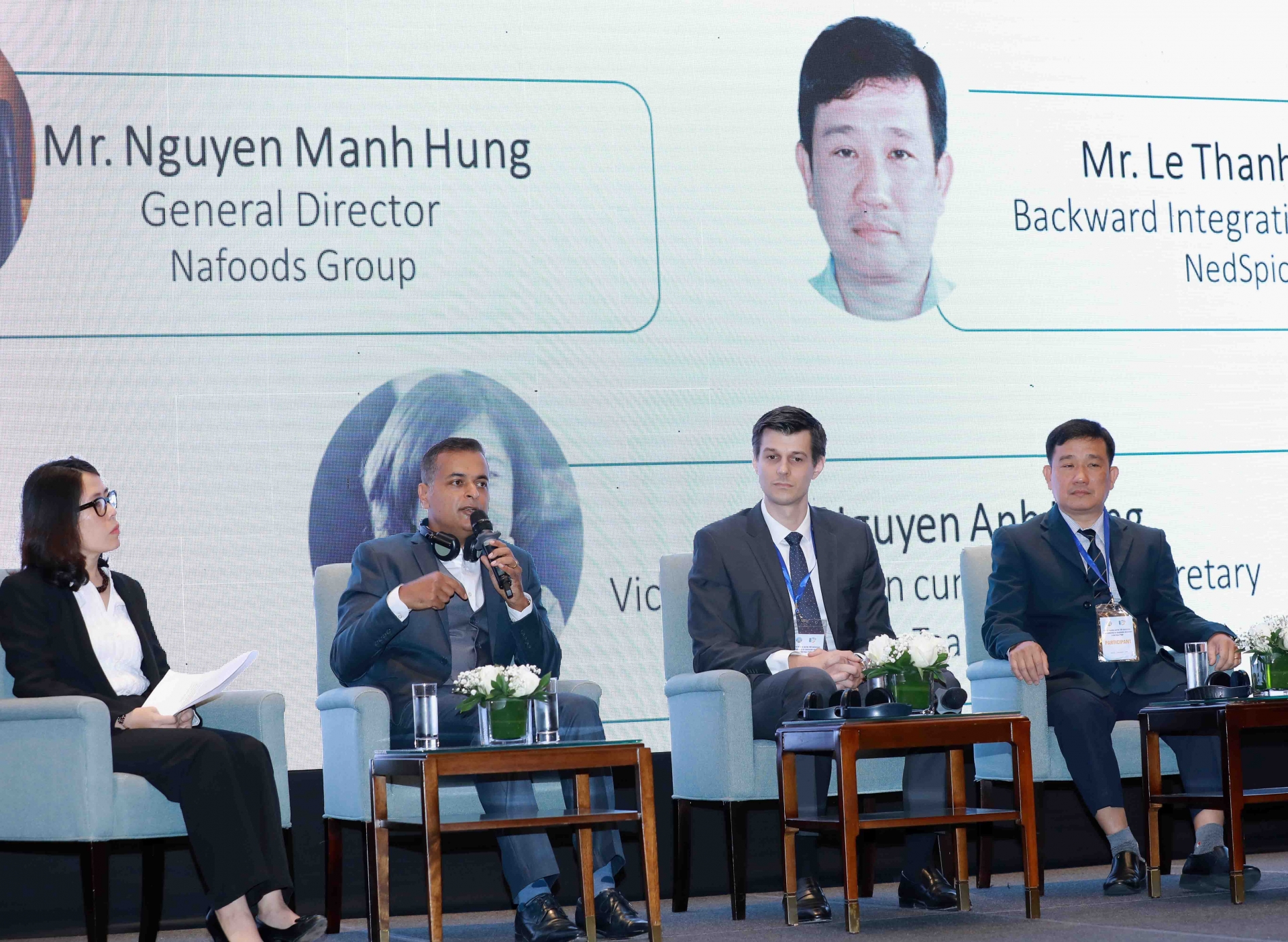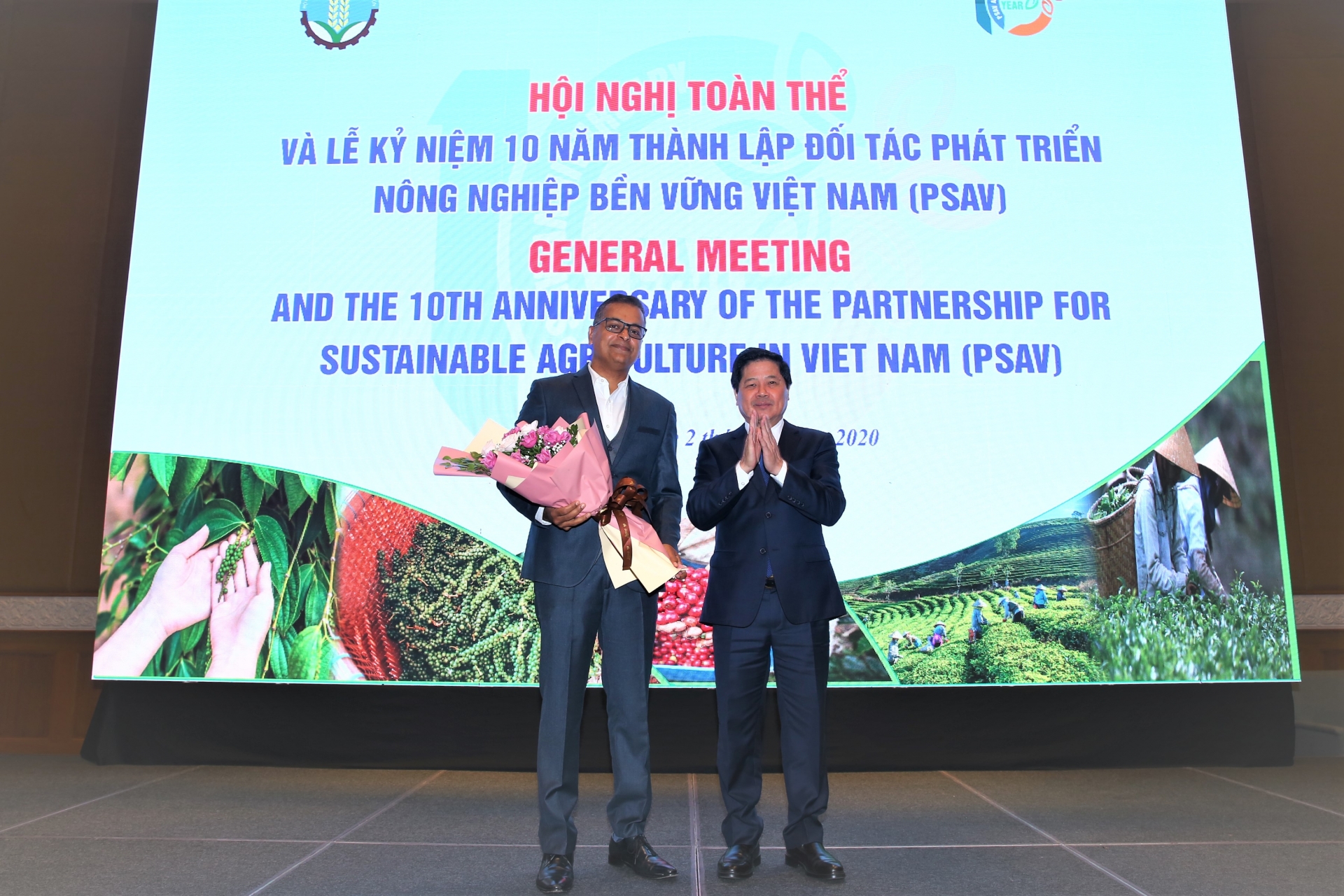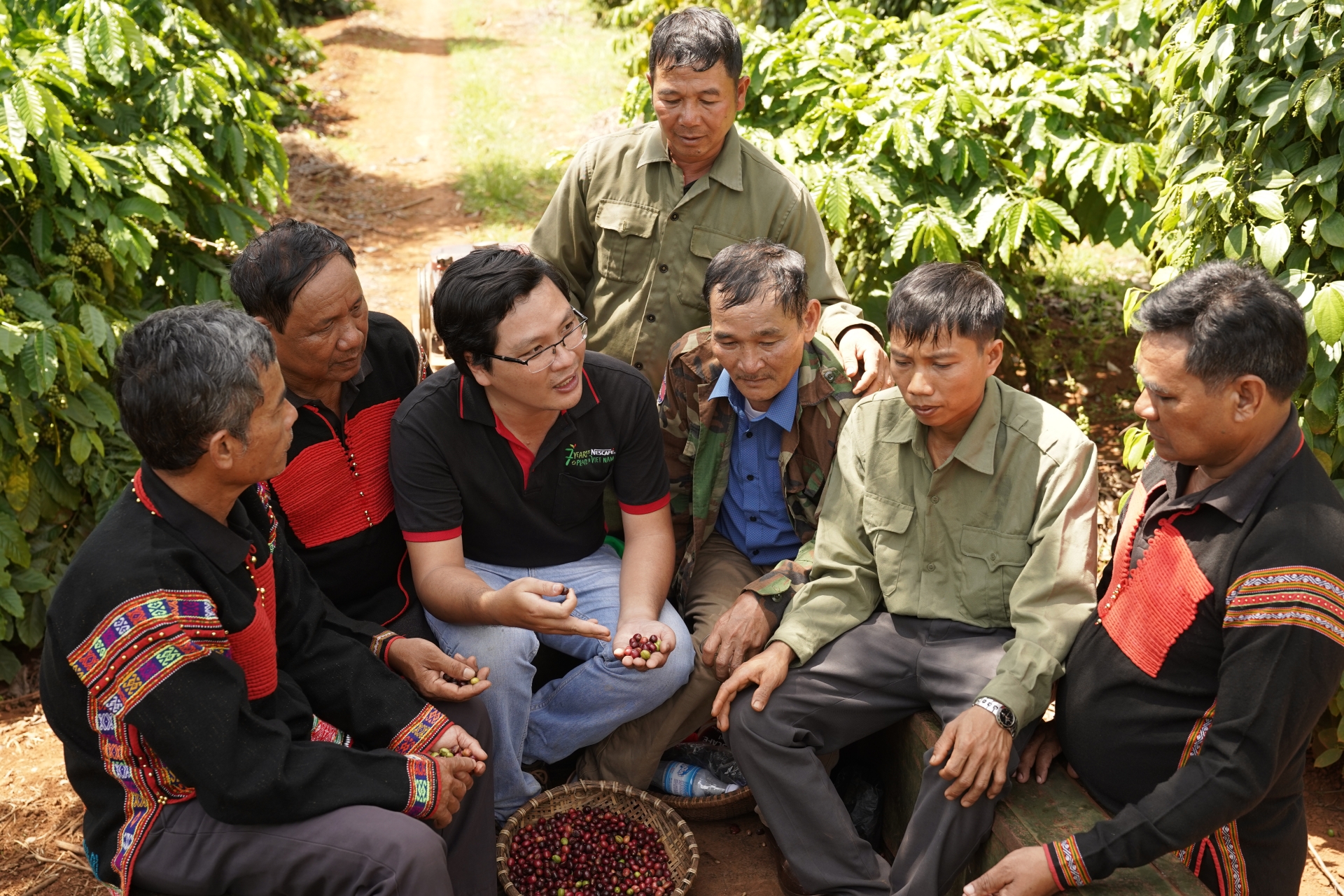Effective partnership to enhance position of Vietnamese agricultural products
 |
| Binu Jacob, CEO of Nestlé Vietnam sharing his thoughts at the event |
The Ministry of Agriculture and Rural Development (MARD) has recently organised the general meeting and the 10th anniversary of the Partnership for Sustainable Agriculture (PSAV) establishment titled "Enhancing position of agricultural products of Vietnam at international markets".
PSAV was established in 2010 under the New Vision for Agriculture 2020 approach to the 20-20-20 objective, which is a 20 per cent increase in productivity, 20 per cent reduction in poverty, and 20 per cent reduction in emissions. PSAV was co-chaired by the Minister of Agriculture and Rural Development and general director of Nestlé Vietnam from 2010 to 2016.
So far, the PSAV boasts eight PPP Task Forces for coffee, tea, fruit and vegetables, fisheries, rice, spices, livestock, and agro-chemicals. They have been formed and operated with the participation of 120 organisations, including government agencies, companies, industry associations, research institutes, and international and non-governmental groups.
Speaking at the meeting, Le Quoc Doanh, Deputy Minister of Agriculture and Rural Development, stressed that enterprises play an increasingly important role in the value chain of agricultural products and the development of the agricultural sector. Investment in the form of PPP is an important tool to attract investment in the agricultural industry. It also develops value-chain production to increase investments in added value and deep processing and food safety of agricultural products.
In PPP Coffee Task Force, the Production Sub-Committee under the Vietnam Coffee Coordination Board (VCCB) is the most active group.
At the discussion panel, Binu Jacob, CEO of Nestlé Vietnam said that the NESCAFÉ Plan, which was launched by Nestlé in Vietnam in 2011, has been able to contribute to increasing the value and quality of Vietnamese coffee beans, thereby improving the livelihoods of farmers.
 |
| Binu Jacob, CEO of Nestlé Vietnam, received flowers from Le Quoc Doanh, Deputy Minister of Agriculture and Rural Development |
After 10 years of implementation, the NESCAFÉ Plan have supported to rejuvenate 46,000 hectares of aged coffee areas in the Central Highlands. The programme also conducted 260,000 training lessons with the participation of agronomists to raise farmers' awareness. As a result, the programme helped coffee farmers save costs by reducing 40 per cent water for irrigation and 30 per cent chemical fertilisers and pesticides while increasing their incomes by 30-100 per cent in the past 10 years.
Since its inception in Vietnam, Nestlé has always provided the best support to Vietnam’s coffee industry. Vietnam was unknown on the global coffee map 20 years ago. Today, it is the world’s largest Robusta coffee nation. Additionally, Nestlé remains the biggest buyer of coffee in Vietnam. The company not only sources green coffee beans but also exports processed coffee products to increase the value of Vietnamese coffee beans.
In addition to NESCAFÉ Dolce Gusto coffee tablets, Nestlé also produces instant coffee products with flavour tailored for Vietnamese consumers at Nestlé Tri An factory in Dong Nai with a tightly controlled production process.
Partnership to elevate Vietnamese agricultural products
NESCAFÉ products are made from high-quality Vietnamese coffee beans with technical assistance from NESCAFÉ Plan. The products are exported to 25 foreign markets and are beloved by many consumers in the world.
Nestlé Vietnam has formed strong partnerships to create shared values for the community towards sustainable development. This reflects through its role as co-chair of OSAV and PPP Coffee Taskforce. Over the past 10 years, Nestlé’s agronomist team have worked closely with the Western Highlands Agriculture and Forestry Science Institute (WASI) in its journey with farmers.
"Nestlé Vietnam always works closely with public and private partners to support farmers in sustainable coffee cultivation, making Vietnam the world’s second largest coffee exporter,” said Jacob.
 |
| Nguyen Huu Thong, an agronomist of Nescafé Plan, discussing with farmers how to take care of coffee farms effectively |
According to experts, members of PSAV have brought great opportunities to promote sustainable and efficient agricultural development as well as increase the competitiveness for Vietnamese agriculture in international markets. Improving institutions and policies in the coming time will help strengthen and replicate this successful model and attract more investment in the form of PPP in the agricultural sector.
What the stars mean:
★ Poor ★ ★ Promising ★★★ Good ★★★★ Very good ★★★★★ Exceptional
 Tag:
Tag:
Related Contents
Latest News
More News
- AI reshapes media and advertising industry (December 29, 2025 | 08:33)
- FPT and GELEX sign deal to develop blockchain tech for global markets (December 29, 2025 | 08:29)
- Vietnam’s GDP forecast to grow by 9 per cent in 2026 (December 29, 2025 | 08:29)
- Women entrepreneurs are key to Vietnam’s economic growth (December 29, 2025 | 08:00)
- Vietnam's top 500 value-creating enterprises announced (December 27, 2025 | 08:00)
- The PAN Group shaping a better future with ESG strategy (December 26, 2025 | 09:00)
- Masan Consumer officially lists on HSX, marking the next phase of value creation (December 25, 2025 | 13:20)
- MCH to become the largest consumer stock on VN-Index (December 24, 2025 | 11:05)
- Oil and gas firms post strong 2025 results (December 22, 2025 | 17:42)
- SABECO wins multiple international beer awards (December 22, 2025 | 17:41)





















 Mobile Version
Mobile Version